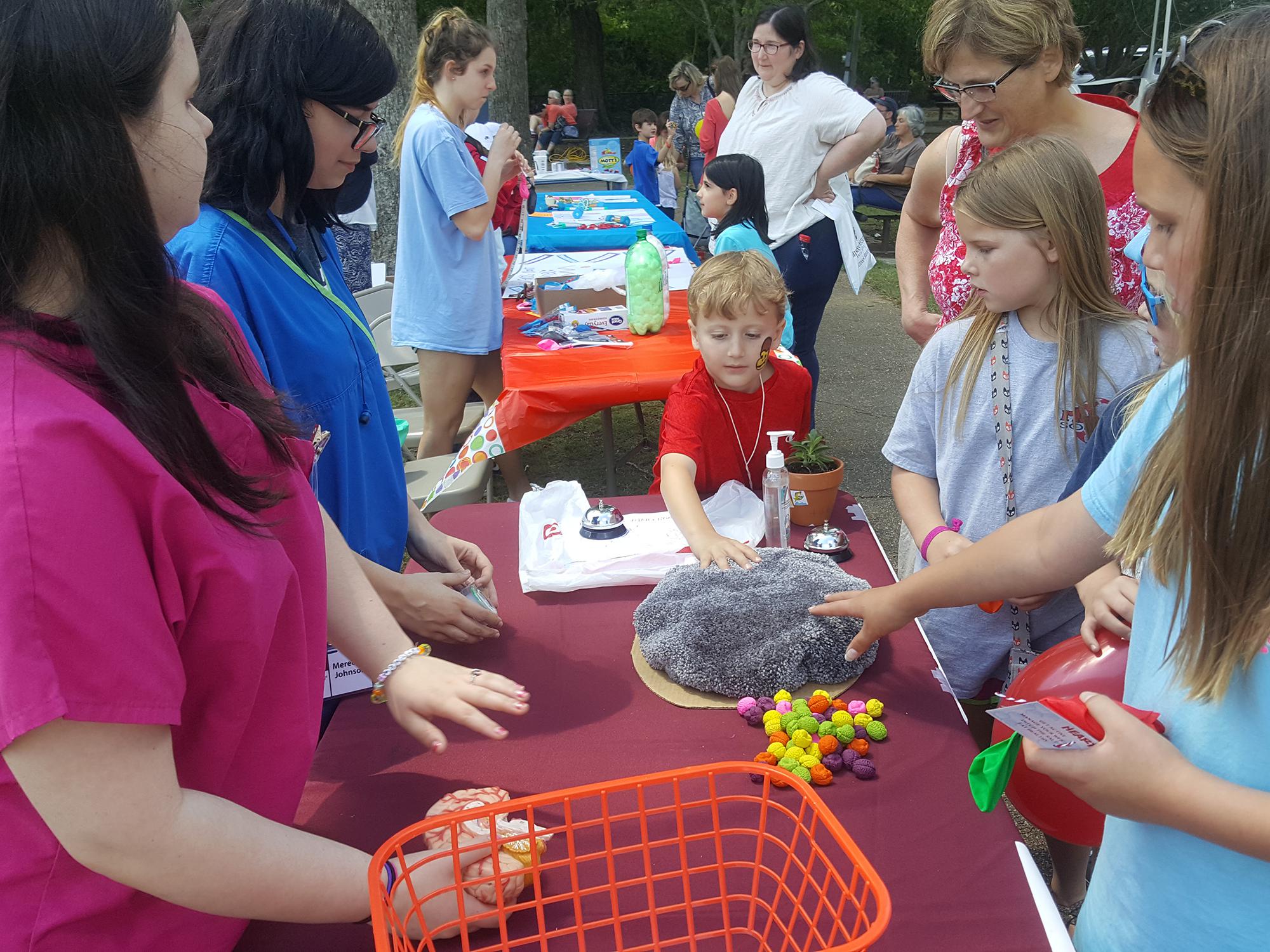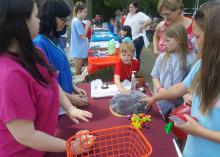Information Possibly Outdated
The information presented on this page was originally released on September 28, 2017. It may not be outdated, but please search our site for more current information. If you plan to quote or reference this information in a publication, please check with the Extension specialist or author before proceeding.
Extension program promotes children’s health literacy
STARKVILLE, Miss. -- October is Children’s Health Month, but Mississippi’s Junior Master Wellness Volunteers are dedicated year-round to “promoting healthy living through community connections” in the state.
The Junior Master Wellness Volunteer program, or JrMWV, is a community health education and volunteer leader training program offered through the Mississippi State University Extension Service 4-H program in partnership with the University of Mississippi Medical Center and the UMMC/Myrlie Evers-Williams Institute.
Ann Sansing, MSU Extension community health coordinator, said this is the latest program developed in a five-year partnership with the medical center around delivery of the Community Health Advocate curriculum, which began there under the leadership of Dr. Rick deShazo.
“The basic goal for this program is to improve health literacy and healthy lifestyle choices,” Sansing said. “Health messages are delivered in one-on-one or group settings. Group projects promote health and wellness in communities. This program provides an opportunity for delivering important health education and simultaneously developing volunteer leadership and teambuilding skills in teens, which are significant 4-H youth development principles.”
The program is open to 14- to 18-year-olds. A total of 159 students have been trained as JrMWVs since the pilot program in 2015. In exchange for their training, the volunteers are required to give back 24 hours of community service over the course of one year.
Community service includes delivering health messages to families, friends and community residents at civic clubs and faith-based organizations. Volunteers also assist with health fairs, organize community fun runs or walks, and visit nursing homes and other health care organizations.
One component of volunteer education is a training series that covers hypertension, diabetes, obesity, health literacy, tobacco use, food portion control and communicating with health professionals, among other wellness-related topics.
“JrMWVs are taught to understand and comply with patient privacy rules when working in a group setting or one-on-one with an individual,” Sansing said. “Blood pressure monitoring skills and how to read and interpret a weight and body mass index chart and communicate appropriately are among many other skills they learn.”
Volunteers also learn how to plan a healthy meal, read a food label, and recognize signs of hyperglycemia and hypoglycemia.
“Brushing and flossing techniques to ensure good oral health are taught with a focus on children’s and seniors’ health,” Sansing said. “The volunteers also learn symptoms of stress and tips for managing stress that can be shared with friends, family and other residents in their community.”
Training also includes a social media guide with more than 135 health messages, which correspond with curriculum content. JrMWVs increase awareness about health literacy and healthier lifestyle choices by using Twitter and Instagram.
Most current volunteers live in Itawamba, Sunflower, Tate and Hinds counties. Recently, 36 Extension agents have been trained in 32 counties across the state to implement the program in high schools, 4-H clubs, Mayor’s Health Councils and other youth organizations.
Sansing said agents are now in the process of recruiting for start-ups this fall.
“The JrMWVs receive support and programmatic oversight from their local Extension agent. The Extension agents partner with health science classes, family and consumer classes, 4-H clubs and others to train and deliver program content. The agents direct and approve the community service hours and engage the JrMWVs in many activities they are already doing related to health and wellness,” Sansing said. “The students also organize volunteer opportunities on their own, which can include working on a 4-H group community project.”
An example of this was a series of nine health stations Tate County JrMWVs presented at the Senatobia Five Star City Festival this spring. Students researched and created booths with information children could learn about the functions of nine different organs and how to keep them healthy. Demonstrations included air capacity of the lungs, flossing to maintain a healthy mouth and keeping muscles strong with exercise.
Laura Brumbagh, Extension 4-H agent in Tate County, said 32 JrMWVs there recorded more than 700 volunteer hours throughout the program’s inaugural year in organizing the stations and numerous other group projects.
“Working with the Junior Master Wellness Volunteers was a very rewarding and inspiring experience,” Brumbaugh said. “The students’ hard work and dedication to educating children on how to maintain a healthy lifestyle ensured that the project was successful. I am proud of their efforts and look forward to expanding the program this year.”
For more information on the Junior Master Wellness Volunteer program, visit http://extension.msstate.edu/jmwv.




